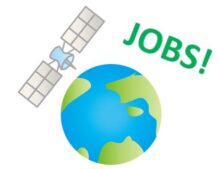by Dr Eirini Politii, Brockmann-Consult GmbH
On 12 December 2024, the United Nations General Assembly decided to designate 27 August as World Lake Day, to be observed annually. This August, let us observe the first World Lake Day by increasing awareness of the importance of lakes as diverse ecosystems that support rich biodiversity, human activity and are sentinels of climate change. Let us together find better ways to preserve, conserve, restore and sustainably manage healthy lakes and the ecosystems they support around the world.

GEO AquaWatch plans to observe this year’s first World Lake Day and invites you to join in. How can you join in? Here are some ideas:
- Read online resources or find a book in your local public library about lakes to learn more about these wonderful ecosystems and the life they support. E.g., we recommend this UNEP World Water Quality Alliance publication.
- Take a walk along your neighbouring lake’s shoreline and/or organise a picnic with your loved ones at the lakeshore.
- Get out and enjoy a water activity like swimming, kayaking or fishing in your favourite lake.
- Organise a litter collection activity at your local water body.
- Download a free mobile phone app and join a community of 100s citizen scientists who use their mobile phones to collect water quality information in their local water bodies or when on holiday. E.g., EyeOnWater and EyeOnWater | Australia.
- Explore satellite imagery in various lakes around the world by simply getting on Google Maps/Google Earth, or visiting one of these free platforms: Copernicus Browser or NASA STREAM to browse through various satellite products on lake water quality.
- Take a course on monitoring lakes using Earth Observation, e.g., see this NASA ARSET course.
- Upload photos of your local lake on social media using this hashtag #WorldLakeDay and tagging GEO AquaWatch on Bluesky, LinkedIn or Facebook.
Find below useful and relevant links:
International Lake Environment Committee Foundation (ILEC)
SDG Knowledge Hub by the International Institute for Sustainable Development (IISD)
UN Decade on Ecosystem Restoration | Lakes
Ongoing projects on lake restoration funded by the European Commission: FERRO, FutureLakes, ProCleanLakes, EUROLakes
Acknowledging Indonesia’s proposal for the designation of World Lake Day, we have selected this Sentinel-2 true colour image showing Kelimutu; a volcano in Indonesia on Flores island famous for its three crater lakes of changing colours.

Kelimutu lies within the Sunda volcanic Arc that was formed by the subduction of the Indo-Australian Plate under the Eurasian Plate. The three crater lakes, called Tiwu Ata Bupu (Lake of Old People), Tiwu Ko’o Fai Nuwa Muri (Lake of Young Men and Maidens), and Tiwu Ata Polo (Bewitched or Enchanted Lake), formed as a result of past volcanic activity. The three lakes are famous as a tourist attraction because they often change colour due to chemical reactions resulting from the minerals contained in the lakes triggered by volcano gas activity. What is interesting is that the colours in the lakes change independently from each other, as each has its own unique connectivity to the underlying volcano’s activity. Tiwu Ata Bupu, the westernmost of the three lakes, is usually blue. The other two lakes, Tiwu Ko’o Fai Nuwa Muri and Tiwu Ata Polo, separated by a shared crater wall, are typically green or red. Other colours such as turquoise, brown and black have also been reported.
Volcanic hydrothermal vents create gasses that are released into the lakes and cause bubbling and even boiling. The high temperatures of the lakes are also a result of the high temperatures of the volcanic system below. Lake temperatures ranging from 20 °C to 30 °C, depending on the lake and level of volcanic activity occurring [1].
Kelimutu is sacred to the local Lio people, who believe the souls of the dead migrate here. Young people’s souls go to the warmth of Tiwu Koo Fai Nuwa Muri (Lake of Young Men and Maidens), old people’s to the cold of Tiwu Ata Bupu (Lake of Old People), and those of the wicked to Tiwu Ata Polo (Bewitched or Enchanted Lake).

Image: Kelimutu volcano and its three crater lakes featured on a 5,000-rupiah banknote (Bank Indonesia). Credit: Wikipedia
[1] Pasternack, G.B., Varekamp, J.C., (1994). The geochemistry of the Keli Mutu crater lakes, Flores, Indonesia. Geochemical Journal 28 (3), 243–262. DOI: 10.2343/geochemj.28.243






